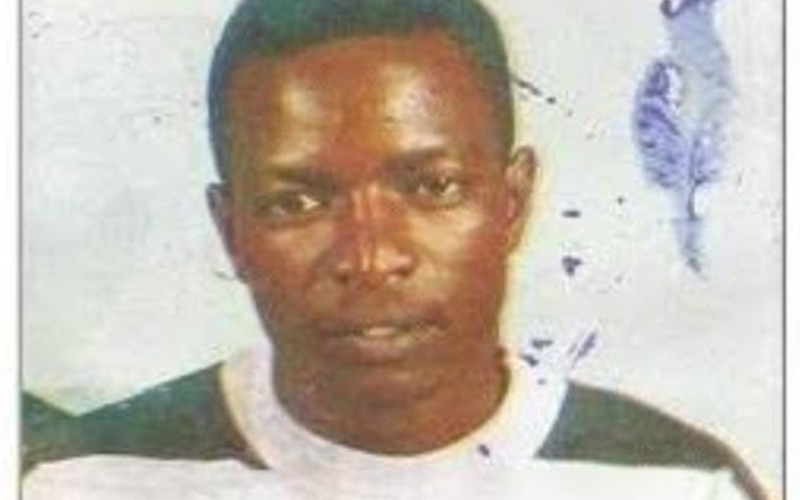Twenty-five years ago, the heartbreaking news of the death of Ukambani benga star Charles Musyoki Kikumbi dominated local airwaves.
The self-styled and gifted music composer, popularly known as ‘Kijana,’ perished in a grisly road accident at Katheka-kai along the Machakos–Nairobi highway early on a Sunday morning.
A quarter-century later, the tantalizing memories of Kijana and his Kimangu Boys Band still reign supreme among lovers of Kamba music. Last Thursday, fans and fellow artistes converged at Kifaru Lounge along Mombasa Road to commemorate the 25th anniversary of Kijana’s passing.
Although his life was cut short at the young age of 30, Kijana had successfully recorded over 20 volumes (cassettes) and established one of Kenya’s most influential secular music bands.
Among his most famous hits are Mwende Mwende, Leo ni Leo, Kadogo, Wendosu, Marieta, Anita, Kyalo Kya Mbuani, Mangalita, Date ya Sikuku, and Chokora. Others include Father Kijana, Safari ya Kisii, Mwongeli, Ngai e Vinya, Asante Peter Muambi and Safari ya Ndia.
So, who was Kijana—and why has his legacy endured over time?
The Sunday Standard spoke to several individuals who knew him during his heydays in the music industry.
Veteran musician Francis Danger, who led the Kakutha Boys Band in the past, described Kijana as a talented musicians whose name will remain etched in the history of Kamba music.
“Musyoki (Kijana) was exceptionally talented. His strong work ethic, discipline, and passion for excellence made him a star in record time after forming his own band,” Danger said in an interview.
Danger, now a gospel artiste and seasoned guitarist, says he was among those who ushered Kijana into the music scene in the mid-1980s.
“He was a very obedient young man. He began performing at Kabati Motel before moving to Nairobi, where he recorded his early albums with Sua Productions—a firm then owned by Voice of Kenya Kamba broadcaster Esther Ndunge Mutisya,” Danger said.
During his stint with the Kimangu Boys Band, Danger played rhythm and bass guitar on some of Kijana’s biggest hits, including Mwende Mwende and Leo ni Leo.
He added that although Kijana is gone, his legacy remains indelible. “He had a huge, fanatical following—and still does, even in death. His songs were rich in creativity, with lyrics and rhythm that blended perfectly,” said Danger.
Another famed benga artiste, John Muasa — currently leading Simba One Band and a former member of Kimangu Boys — described Kijana as a towering figure in music whose influence will span generations.
In a recent TikTok post, Muasa recalled how a fatal road crash ended Kijana’s life just as the band was preparing to record Volume 21.
“I joined Kimangu in 1994 when they had just recorded Volume 11. We then produced volumes 12 to 20 by around 1999. In June 2000, he mobilised us to start Volume 21, but sadly, he was involved in a fatal crash at Katheka-kai,” he said.
Three other people survived the accident. “His bouncer, Tyson, and two other passengers sustained minor injuries when the car he was driving collided head-on with a lorry. To this day, the area where the accident occurred is known as Kimangu,” he said.
Machakos business tycoon James Kyania Mulwa, popularly known as Jambazi, was a well-known promoter and sponsor of the Kimangu Boys Band from its early days. He recalled helping Kijana build his career through direct financial support.
“I saw that he was talented and focused. I loved his songs—he was smart, creative, and open to different views. I couldn’t resist helping him succeed,” Jambazi told The Sunday Standard.
His account is corroborated by frequent mentions of his name and businesses in Kijana’s songs. In the hit Kyalo Kya Mbuani, Kijana narrates an unsuccessful trip from Machakos to Kola to visit Jambazi.
Anthony Ngesa, a boyhood friend and top fan of Kijana, said the artiste spent his early years at Mbiuni Market in Mwala Constituency, where he honed his guitar skills.
Kijana’s firstborn son, Festus Kituu Musyoki, has followed in his father’s footsteps. He leads the fast-rising Kimangu Junior Boys Band, which he founded about six years ago. Although he was very young when his father passed away, he says his father’s legacy continues to inspire him.
“I wish I had grown up with my father. He was truly influential. Still, his voice lives in me. I will follow in his footsteps because my future is in music,” said Kituu, an alumnus of Laikipia High School.


